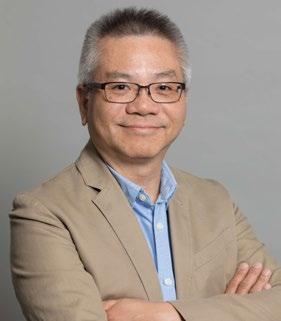
4 minute read
REGULATOR SHOWCASE
The Alberta College of Social Workers and DEI
Contributed by ACSW staff people continue to face every day, there must be a relationship with those being served alongside understanding and knowledge in practice.
It is the belief in these relationships that ACSW created space on Council for Indigenous ways of knowing to exist, relying on the collective wisdom of the ISWC to guide our work in governing the social work profession and in the mandate to protect the public. Indigenous social work practice “... requires us to be mindful and respectful of both worlds and teaches us the importance of relationship building so that all social workers develop wise practice with those they serve.” (Honouring Sacred Relationships: Wise Practices in Indigenous Social Work, Alberta College of Social Workers Indigenous Social Work Practice Framework, 2019)
The Terms of Reference, like a roadmap, guides the committee’s work, ensuring understanding of purpose. It is important to develop a Terms of Reference (TOR), as it holds the group accountable for their work and helps to provide clarity. It is also important to describe membership composition, processes, governance structure, etc. in the TORs as this document is the foundation for any committee on how to work together, set priorities and achieve common goals. A strong TOR will also create a shared agreement of expectations and responsibilities toward each other, affirming relationship between committee and council.
Emphasizing DEI principles such as fairness, trust, connection and respect is important, as it upholds an agreement between committee members to share in the responsibility of safety and transparency when engaging in difficult conversations.

The social work profession in Alberta already has strong DEI principles that are incorporated within the Standards of Practice (E.2 Cultural Competency and F.1 Dignity of Clients). It is important to have representation from racialized or marginalized populations within the social work profession. We recognize that lived experiences often influence our draw towards the social work profession. When it comes to empowering racialized or marginalized professionals within the profession, it is paramount that DEI principles are embraced, as we are given the responsibility of working with the most vulnerable/marginalized and that RSWs do not exploit or harm their clients. RSWs that identify with being racialized or marginalized may experience discrimination or other harmful behaviours.
Therefore, these professionals understand deeply how their clients are feeling when they experience discrimination or other harmful behaviours. Social work professionals can provide robust support to clients given their shared experiences and/or provide recommendations towards policies that are structurally disadvantaging marginalized groups.
Lastly, ACSW encourages different types of learning activities that promote self reflection and growth. It is our view, that each RSW has a professional responsibility to be aware of their biases and to help ensure that their biases do not lead into discriminatory behaviour. This can be achieved through a commitment to continuous experiential learning throughout one’s social work career. For example, RSWs can take experiential learnings, like participating in sweat lodges, which can be counted towards their continuing competence. ACSW supports all types of learning activities that promote DEI principles.
ACSW recognizes that our journey with DEI is everlasting and a commitment towards learning. We encourage all professionals to engage with DEI learning opportunities that challenge one’s biases and discomfort. For over 20 years, we have embraced DEI principles and recognized how valuable it is to have Indigenous representation in our governance model. However, our work continues to ensure that social workers integrate DEI into their practice and that service users receive culturally safe services from RSWs.
“With an aspiration of being an exemplary social work regulatory college in Canada, DEI and Indigenous engagement, as in the past and in future, are always a critical component of ACSW for good governance and regulatory practice,” ACSW Council President, Dr. Siu Ming Kwok says.
“With an aspiration of being an exemplary social work regulatory college in Canada, DEI and Indigenous engagement, as in the past and in future, are always a critical component of ACSW for good governance and regulatory practice”
- Dr. Siu Ming Kwok, ACSW Council President





